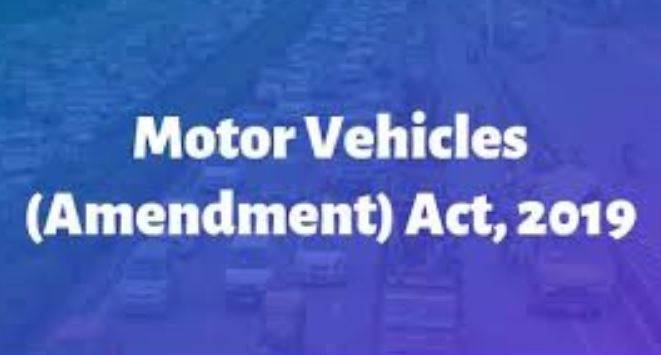
The Motor Vehicles (Amendment) Amendment Act, 2019, with stringent provisions for road safety, with a view to reducing road accidents in the country. The Act was passed by the Rajya Sabha by 108 votes against 13 after the discussion held on 31 July 2019. The Act was passed in the Lok Sabha on 23 July 2019.. It was known that the Motor Vehicles (Amendment) Bill, 2019 was brought by amending the Motor Vehicles Act of 1988.
The President has approved the Motor Vehicles (Amendment) Bill, 2019, with stringent provisions for road safety, with a view to reducing road accidents in the country. The Act was passed by the Rajya Sabha by 108 votes against 13 after the discussion held on 31 July 2019. The Act was passed in the Lok Sabha on 23 July. It is known that the Motor Vehicles (Amendment) Bill, 2019 was brought by amending the Motor Vehicles Act of 1988.
Compensation to victims of road accidents: The central government will develop a plan to provide cashless treatment to the victims of road accidents during the 'Golden Hour'. According to the Act, 'Golden Hour' is the one-hour time period after a fatal injury when immediate medical care is most likely to prevent death. The central government can also formulate a scheme to provide interim relief to those claiming compensation under third party insurance. The Act has increased the minimum compensation for hit and run cases:
(i) increased from Rs. 25,000 to Rs. 2,00,000 in case of death and
(ii) In case of serious injury, from Rs 12,500 to Rs 50,000.
Compulsory Insurance: The Act requires the Central Government to create a Motor Vehicle Accident Fund. The fund will provide compulsory insurance cover to all road users in India. It will be used for the following situations:
- Treatment of road accident victims under the Golden Hour scheme.
- Compensation to the representatives of the victims of death in hit and run cases.
- Compensation of seriously injured person in hit and run cases and
- Compensation of persons specified by the Central Government.
- Funds will be deposited in this fund through the following:
- Payment of such nature as may be specified by the Central Government,
- Grants or loans by the central government,
Balance in Compensation Fund (existing fund set up under the Act to provide compensation in hit and run cases) or Any other source determined by the Central Government.
Good Samaritans: According to the Act, a Good Samaritan is a person who provides emergency medical or non-medical assistance to a victim at the time of an accident. This help should be in good faith, voluntary and without the expectation of an award.
If the accident victim suffers any kind of injury or death due to negligence in providing assistance, the Good Samaritan will not be liable for any civil or criminal action.
Recall of vehicles: The Act allows the Central Government to order recall (withdrawal) of such motor vehicles in which there is a defect which may harm the environment or driver or road users. In such a situation the manufacturer must (i) return the full price of the vehicle to the buyer, or (ii) replace the defective vehicle with another vehicle with similar or better characteristics.
National Transport Policy: The Central Government may formulate a National Transport Policy in consultation with the State Governments. In this policy:
- A plan structure will be created for road transport
- Framework for grant of permits will be developed
- Transport system priorities will be specified, etc.
Road Safety Board: The Act provides for a National Road Safety Board which will be made through notification by the Central Government. The board will advise the central and state governments on all aspects of road safety and traffic management. These include advice related to the following:
- Motor Vehicles Standard
- Vehicle registration and licensing
- Road safety norms
- Promoting technology of new vehicles
Offenses and Penalties: The Act has increased the penalties for various offenses. For example, the maximum penalty for driving drunk on drugs or drugs has been increased from Rs 2,000 to Rs 10,000. If the motor vehicle manufacturer fails to comply with the norms of manufacture or maintenance of motor vehicles, a maximum penalty of up to Rs 100 crore or imprisonment up to one year or both can be awarded.
If the contractor does not comply with the design criteria of the road, he may have to pay a fine of up to one lakh rupees. The Central Government may increase the penalty mentioned in the Act by 10% every year.